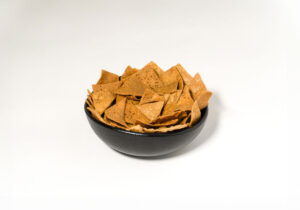Pregnancy is a critical period in a woman’s life with myriad physical changes occurring. Right nutrition during this time is imperative for the mother and her developing child’s health. Finger millet, more popularly known as ragi, is a nutrient-rich grain that has garnered significant attention in recent years due to its health advantages. This article will navigate the benefits, potential risks, and safety precautions when consuming this wholesome grain during pregnancy.
Benefits of Consuming Finger Millet During Pregnancy
This grain is a great source of essential nutrients required for the baby’s growth and development. Packed with calcium, it aids in building strong bones and teeth. The high iron content in this grain helps to prevent anemia. Besides, it contains folic acid, crucial for the neural tube development of the child.
Additionally, finger millet serves as an excellent source of dietary fiber, preventing constipation commonly seen during pregnancy. It’s a low glycemic index food, helping to maintain blood sugar levels and ward off gestational diabetes.

Potential Risks
Although generally safe for expectant mothers, there are some concerns. One of them revolves around its high oxalic acid content, which can interfere with calcium and other minerals’ absorption. Excessive consumption could lead to kidney stones, an issue pregnant women are already predisposed to.
Reducing the risk of kidney stones involves limiting intake of high-oxalate foods. Cooking finger millet can reduce its oxalate content, making it safer to consume. Furthermore, moderation in consumption and a balanced diet can help minimize the risk of kidney stones.
Another potential risk is contamination with pesticides and other harmful chemicals, a common issue in agricultural practices. To avoid this risk, ensure sourcing finger millet from trustworthy suppliers prioritizing organic and sustainable farming. We, at Kiru, source our raw materials from local farmers adhering to organic and sustainable methods. Our millet-based snacks are made from high-quality, pesticide-free grains, ensuring our customer’s safety.
In conclusion, although finger millet is a nutritious and healthy option for expectant mothers, necessary precautions and moderate consumption are essential. Additionally, ensure that your source prioritizes safe and sustainable farming practices.
Safety Precautions
It’s essential to ensure safety while consuming this grain during pregnancy. Make sure to clean it thoroughly to eliminate any dirt, debris, or impurities. Proper storage to prevent mold growth is also crucial. Avoid excess consumption as it can lead to digestive problems and interfere with the absorption of other essential nutrients.
In conclusion, while finger millet consumption during pregnancy can be beneficial, it is crucial to exercise caution and consume moderately. We, at Kiru, are committed to providing high-quality, nutritious, and safe millet snacks. For a nutritious and delicious snack during pregnancy, give our millet snacks a try.
Incorporating Finger Millet into Your Pregnancy Diet
There are several ways to incorporate this grain into your diet. It can be used to make traditional Indian foods, porridge, or as a substitute for rice. Kiru offers a variety of healthy snacks made from finger millet suitable for pregnant women.
In conclusion, finger millet is a nutritious grain that can offer several health benefits during pregnancy. Ensure safety precautions when consuming and sourcing it from a reputable source. Kiru is dedicated to providing healthy snacks made from locally sourced, organic ingredients. Give our millet snacks a try and enjoy the benefits of this nutritious grain during your pregnancy.





